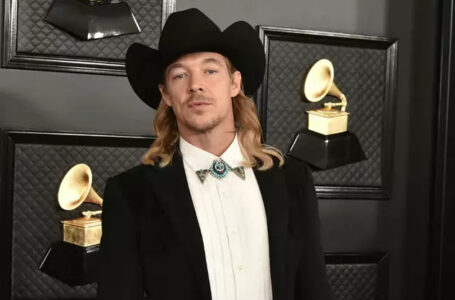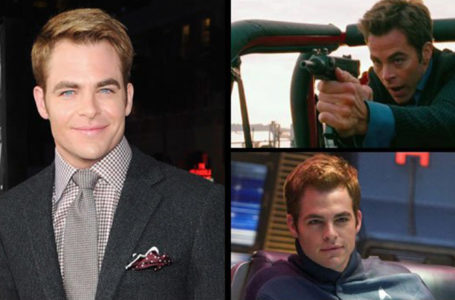Law360, New York (January 16, 2018, 6:29 PM EST) — After nearly five years of litigation with golfer Vijay Singh, the PGA Tour has made the latest in its string of determined efforts to avoid trial over whether the organization acted in bad faith by suspending Singh for using a deer antler spray supplement that turned out not to be prohibited.
Things hit a boiling point recently as the PGA Tour appealed an order that would have sent the case to trial and as the formerly No. 1 ranked pro golfer requested that the tour and its Skadden Arps Slate Meagher & Flom LLP attorneys be sanctioned for frivolously dragging out the case by repeating “arguments with no merit” and “creating more costs for [Singh] as part of its war of attrition.”
New York Supreme Court Judge Eileen Bransten last week rejected the sanctions request and ordered the parties to prepare for the tour’s appeal, meaning the case could continue into a sixth year, with neither party ostensibly willing to settle just yet.
While the yearslong litigation is a seeming case study in New York civil procedure, experts say such contentious litigation is to be expected as it could spawn other such suits questioning how the tour enforces its rules.
There is a fine line between zealous advocacy and sanctionable conduct, and most judges, being former lawyers, are reticent to sanction lawyers and parties unless the behavior is beyond inappropriate. Clearly, the PGA is trying extremely hard to avoid a trial that calls into question the level of investigation performed by it in its determination of this banned substance. That is certainly not unusual.
said sports and entertainment litigator Bryan Freedman of Freedman + Taitelman LLP.
In the lawsuit, first filed back in May 2013, Singh alleges that the PGA Tour exposed him to public humiliation by investigating and suspending him after he admitted to using a supplement called The Ultimate Spray, supposedly made of “velvet from the immature antlers of male deer.”
The spray allegedly contained trace amounts of the banned substance insulin-like growth factor 1, or IGF-1, but the PGA Tour eventually dropped the three-month suspension after the World Anti-Doping Agency issued guidance that the spray is not a banned under WADA’s anti-doping code.
Judge Bransten issued an order in May 2017 that slated the case for trial by keeping alive Singh’s claim that the tour failed to act in good faith. But the tour asked her to rethink that ruling, arguing that she misinterpreted testimony from Singh’s financial adviser over whether the tour caused him to lose his sponsorship deal with Cleveland Golf, which the equipment maker declined to renew in 2013.
Judge Bransten refused that August, again saying that any harm Singh might have suffered as a result of the ordeal is an issue of fact to be resolved at trial. The ruling prompted Singh to seek sanctions against the tour and its attorneys, who have since taken the issue to the appellate court to avoid a trial altogether.
“Sanctions are rarely granted, and when they are granted, they are only granted at the discretion of the judge,” said New York City-based litigator and sports attorney Michael Berger.
In this case, the PGA Tour has pursued its right to seek reargument and now an immediate appeal. Berger said such so-called interlocutory appeals are embedded in New York procedural law and are allowed for in more situations in the state’s courts than in federal courts.
“It creates a whole other level of litigation and it can be time-consuming,” Berger said.
At the heart of the case is the question of whether the PGA Tour acted improperly by not consulting with WADA before publicly punishing Singh and thereby caused him to lose out on sponsorship opportunities such as a renewal of his deal with Cleveland Golf.
The issue is different from what is typically litigated in the major team sports, in that it involves the tour’s procedure for enforcing its doping standards. A similar issue in major team sports is typically handled through an in-house arbitration, which can be challenged in court only in rare instances, such as the Tom Brady Deflategate case and the more recent Ezekiel Elliott domestic abuse suspension challenge.
“The team sports are all subject to collective bargaining agreements and are all subject to mandatory arbitration,” Berger said. “Then you have certain kinds of court proceedings that relate to that like the Tom Brady case, where you go internally and then you go to court to attack or confirm the arbitration result. That is a totally different thing from what you have in Singh’s case. Here, the players are not employees of the PGA Tour but are independent athletes who are working under a body that governs the sport but not them per se.”
While Singh’s suspension was headed for arbitration when the PGA Tour dropped the suspension, Singh was able to file suit in New York court for damages over his alleged humiliation and harmed reputation.
The Fijian professional golfer, who was ranked No. 1 in the Official World Golf Ranking for 32 weeks in 2004 and 2005, began competing in events on the PGA Tour-affiliated Champions Tour in 2013, a professional men’s tour for golfers over the age of 50.
Representatives for the PGA Tour have declined to comment on the lawsuit, citing a “policy of not commenting on pending litigation.” Attorneys for the tour did not respond to a request for comment.
However, at a tour event in Hawaii last week, PGA Tour Commissioner Jay Monahan addressed both Singh’s suit and another class action by tour caddies in California, according to a report by GolfChannel.com, saying that the legal process is playing out and that the tour is “going to run it until the end.”
At least for now, Singh’s claim that the PGA Tour failed to act in good faith will survive.
Winning part of summary judgment like the PGA Tour did is certainly preferable to losing the entire motion, but when the case still requires a trial of fundamental issues that call into question its own disparate treatment, the victory can be Pyrrhic in nature.
Bryan Freedman said.
The case is Singh v. PGA Tour Inc., case number 651659/2013, in the Supreme Court of the State of New York, County of New York.
——–
Additional reporting by Christopher Crosby. Editing by Edrienne Su.





